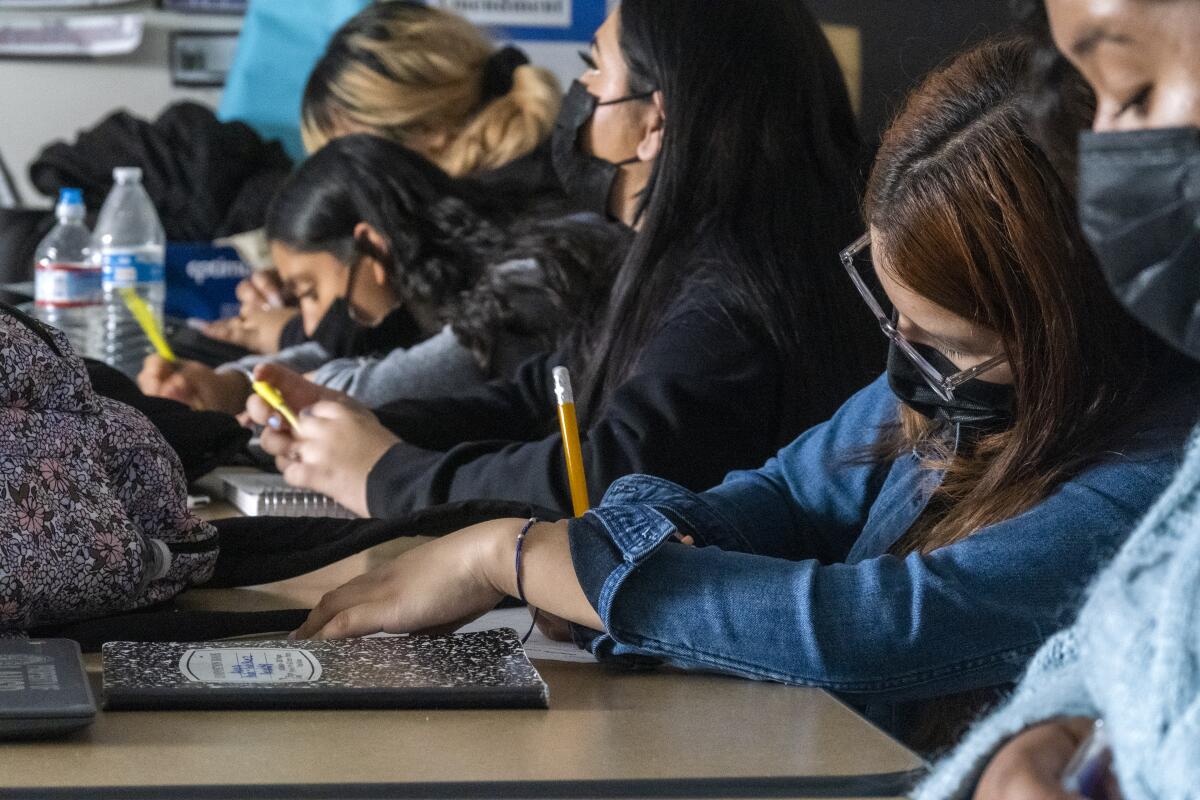Letters to the Editor: How can teachers convey the pain of the N-word without saying it?

- Share via
To the editor: The view that good intentions don’t excuse a teacher reading the n-word in class perpetuates the power of the word. It does not help overcome the past and present attitudes that the word represents.
By suspending the teacher who read Countee Cullen’s poem “Incident” aloud to her fourth-graders, the lesson given to students is, “You are victims, helpless in the face of this magical word.”
Instead, the lesson should be that words themselves are not the problem, it is the context in which they are used, the intention of speaker. Using the N-word to talk about the past and present uses of the N-word is necessary if we are ever going to overcome the attitudes that once made the word acceptable.
The teacher’s good intentions and naïve execution should have sparked a discussion about how to be resilient in the face of past and present attitudes, not a call to retreat into the cave of victimhood.
We must teach our students to think critically about words and the context in which they are used, something you cannot do if you cannot mention the word.
Terry Gomes, San Francisco
..
To the editor: Thank you for printing Sandy Banks’ column.
“Incident” is a good poem, and children should be exposed to it. The pragmatic answer to the question as to whether the teacher could have handled the presentation better could only be that it would depend on the kind of reaction expected.
If a chemistry teacher sets off an explosion in the effort to make the point that energy can be quite potent, then there’s no better way than to make the shock wave destructive.
Banks fervently hopes that the teacher will be returned to the classroom to put what has been learned into practice. Someone has to pick up the pieces, and there won’t be any body parts. Children and teachers are made of too stern a stuff.
Ronald Webster, Long Beach
..
To the editor: As someone who taught English in public schools for 40 years, I’ve read this poem a few times in class. I certainly read each word aloud. I never dreamed I’d be blamed for showing reality.
If the kids are shocked, that’s what Cullen wants.
No wonder there’s a teacher shortage. Not only are you supposed to teach a subject while earning a salary lower than a lot of other college graduates; now you must also balance every nuance of our changing society or be vilified.
Education can be uncomfortable. Living is uncomfortable, too.
Cheryl Clark-O’Brien, Long Beach







